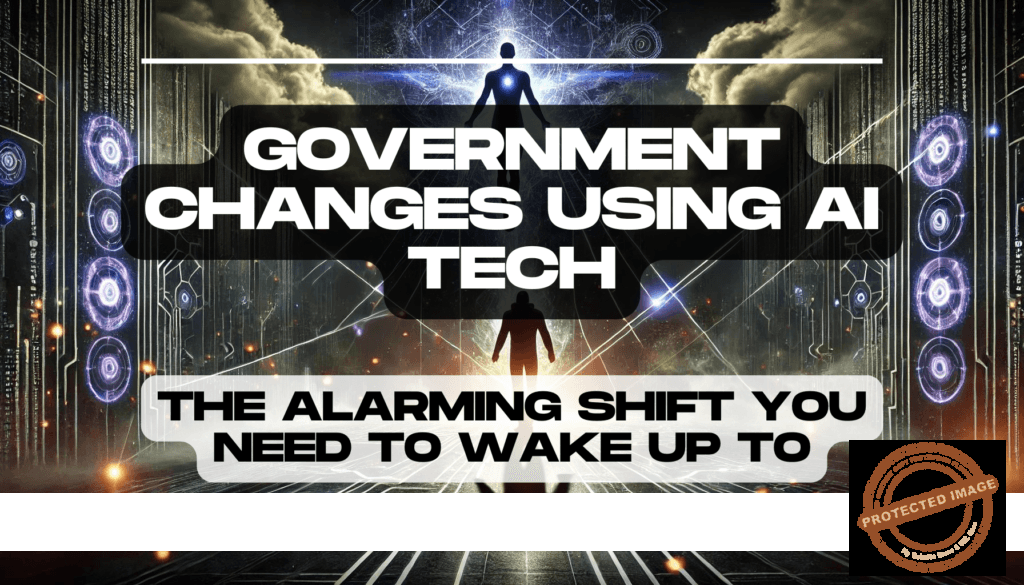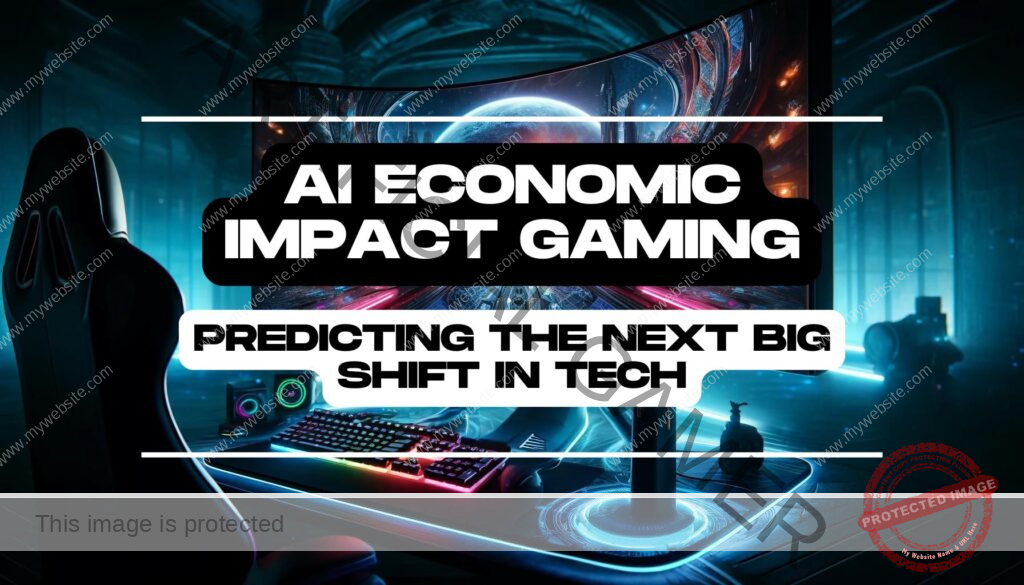Introduction: The Silent AI Takeover in Government—Are You Paying Attention?
In a world increasingly powered by artificial intelligence, most of us glide through life oblivious to the quiet revolution unfolding within the very institutions meant to serve us. Governments, once slow-moving bureaucratic beasts, are now integrating AI technology at lightning speed—reshaping policies, controlling public behavior, and silently tightening their grip on every aspect of our lives. These government changes using AI tech aren’t just a push toward efficiency; they’re altering the balance of power in ways that we can no longer afford to ignore.
And yet, most of us continue to scroll through our screens, blissfully unaware, while AI-driven systems make decisions about our security, privacy, and freedoms. The truth is, we’ve been conditioned to be passive—sheep in a digital age, blind to the tech-driven leash tightening around us. But here’s the kicker: you don’t have to be a sheep. You can be a goat. An independent thinker. Someone who questions, investigates, and stays ahead of the curve.
AI in governance might be sold to you as a tool of progress, a force for good, but ask yourself—who’s really in control? Are these AI-driven changes empowering us as citizens, or are they creating a world where we surrender our rights in exchange for convenience? It’s time to wake up, look beyond the surface, and challenge the narrative we’ve been fed.
The question isn’t whether AI will shape government—it already has. The real issue is, will you be paying attention? Or will you continue to let AI quietly redefine the rules of the game while you sit on the sidelines?
Let’s break it down. Here’s how these government changes using AI tech are influencing our lives, from policymaking to surveillance, and what it all means for you…
Government Changes Using AI Tech: How It’s Reshaping Policies and Power
The integration of AI into government operations isn’t a far-off, futuristic concept—it’s already happening. From automating decision-making processes to predicting criminal activity, AI is quietly shifting the balance of power in ways most of us don’t even realize. On the surface, these government changes using AI tech are being framed as innovations to streamline policy-making, improve public services, and ensure national security. But peel back the layers, and it becomes clear: this isn’t just about making governments more efficient. It’s about control—who has it, how it’s being used, and most importantly, how it’s being concealed from the average citizen.
Take AI-driven policy-making, for example. Algorithms are now influencing decisions that affect millions of lives, from social welfare distributions to law enforcement practices. While we’re told this leads to “fairer” decisions, the reality is far murkier. AI doesn’t just reflect society’s biases—it amplifies them. Imagine a world where policies are drafted based on predictive models that favor certain demographics while marginalizing others. Sounds dystopian, right? But it’s already happening, and the worst part is that many of us are still asleep at the wheel, blindly trusting AI to make “better” decisions than humans ever could.
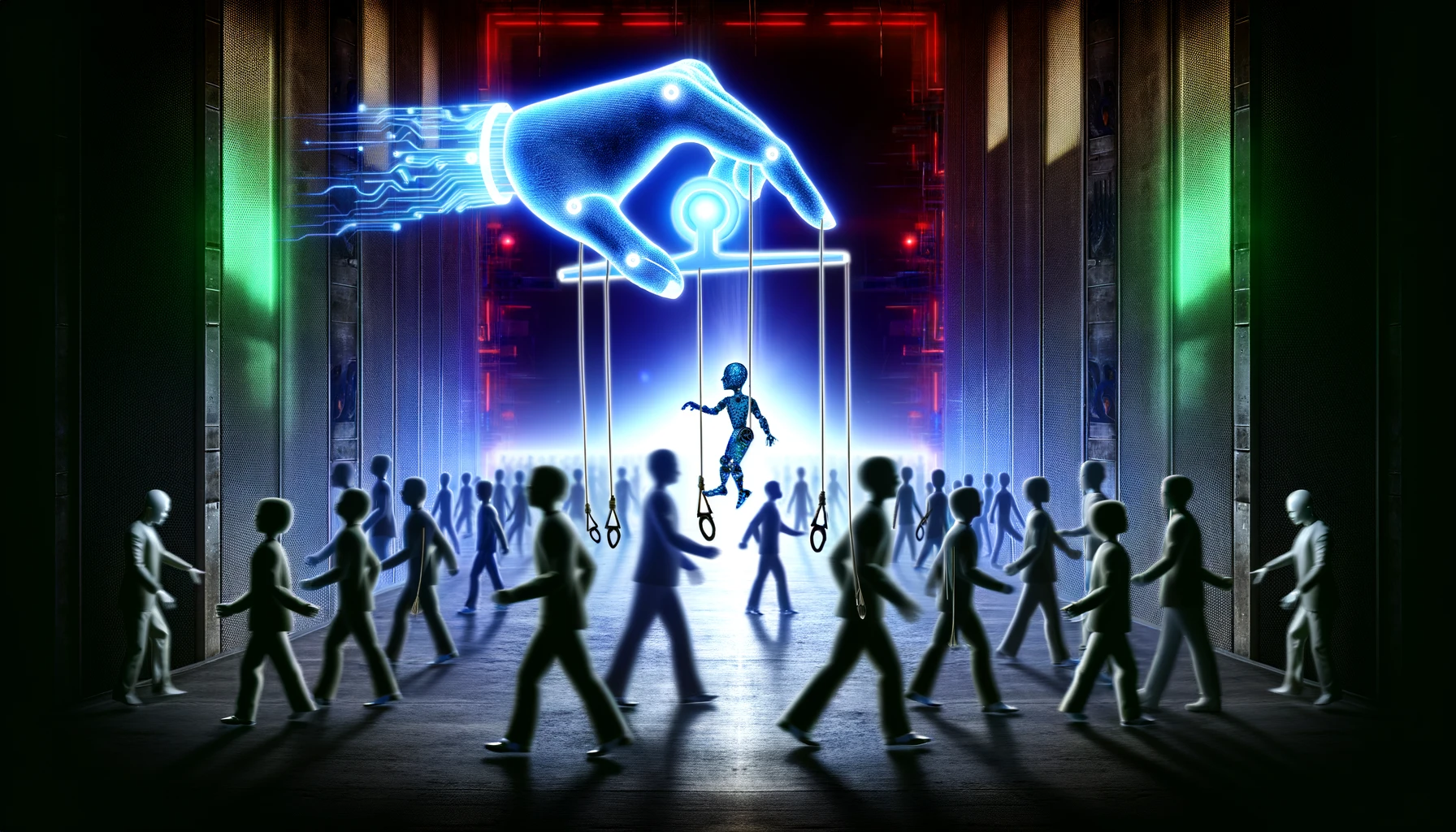
Then there’s the issue of surveillance. Governments around the world are deploying AI in ways that make Orwell’s 1984 seem like child’s play. Facial recognition technology is no longer a sci-fi trope—it’s a tool that’s being used to monitor, track, and control populations in real-time. From China’s social credit system to America’s predictive policing, AI tech is being weaponized to reinforce power structures and reduce citizens to data points. Are we really comfortable with a world where every move we make is logged, analyzed, and potentially used against us?
But it doesn’t stop there. AI isn’t just transforming the way policies are created—it’s automating bureaucratic processes, giving governments the ability to implement decisions at scale, with minimal human oversight. While this might seem like a triumph of efficiency, it raises serious questions about accountability. Who do we hold responsible when an algorithm makes a mistake? When an AI system denies someone essential services or wrongly predicts criminal behavior, can we trust that there will be recourse? Or will governments hide behind the veil of technology, claiming their hands are tied?
The truth is, these AI-driven changes are reshaping the relationship between governments and their citizens in ways that strip away transparency and limit our agency. While some will argue that AI is the future of governance, the real question is: What kind of future are we heading towards?
And yet, the real power of AI isn’t just in how it automates government functions or enhances surveillance. It’s in the way it shifts the very concept of power itself—concentrating control in the hands of those who understand the technology, while leaving the rest of us to play catch-up. The danger isn’t just in how AI changes governments, but in how it changes us—how it conditions us to accept decisions without question, to relinquish our role as active participants in the democratic process.
Now that we’ve scratched the surface, let’s dig deeper into one of the most pressing questions: Is AI in governance truly making things better, or is it simply reshaping the system to benefit the few at the expense of the many? Let’s explore the so-called benefits of government changes using AI tech and see if they hold up under scrutiny…
The Benefits: What Government Changes Using AI Tech Could Get Right
Let’s not fool ourselves—there are real benefits to government changes using AI tech. If implemented with the right intentions, AI has the potential to transform governance in ways that could truly improve society. Efficiency, speed, and precision—these are the buzzwords that get thrown around every time AI is discussed in relation to government, and for good reason. The cold, hard truth is that human-run bureaucracies are often slow, inefficient, and prone to error. Introducing AI into the mix could, in theory, cut through a lot of that red tape. But the question is: can these benefits outweigh the risks, or are we once again being sold a utopian fantasy while ignoring the darker realities?
One of the most obvious advantages is in the realm of public services. AI could revolutionize how we interact with government systems by automating complex processes, streamlining applications, and ensuring quicker responses. Think about applying for healthcare, welfare, or other essential services. Instead of waiting weeks (or months) for a response, an AI system could process the application in real-time, reducing backlogs and ensuring that resources are allocated more efficiently. This would especially benefit those in urgent need—those who typically get stuck in the tangled mess of human bureaucracy.
Then there’s the allure of AI-enhanced decision-making. With AI’s data-crunching capabilities, governments can access insights from massive amounts of information that would otherwise be impossible for human minds to process. Imagine an AI that can predict future trends, identify societal risks, or even spot emerging public health crises before they explode. This kind of tech could be invaluable in creating smarter cities—places that can anticipate needs, from managing traffic flows to optimizing energy usage, all while reducing the strain on human workers.
But let’s not be too quick to celebrate. AI in governance is also being touted as a solution for national security and law enforcement, with promises of safer societies through predictive analytics and enhanced surveillance capabilities. In theory, AI could prevent crime before it happens, identify threats before they materialize, and ensure that law enforcement resources are deployed where they’re needed most. Yet, while this might seem like a net positive, it should immediately raise red flags. The same technology that promises security could just as easily be wielded to increase surveillance and control, curtailing freedoms under the guise of keeping us safe.
However, let’s acknowledge where AI could genuinely make strides: reducing corruption. AI systems—when designed correctly—can remove the human element from decision-making processes, eliminating the biases, favoritism, and corruption that have plagued traditional governmental systems for centuries. Automated systems, driven by algorithms, don’t play politics, and they don’t accept bribes. With AI in place, we might see a future where decisions are made purely on data, not on who knows who or how much money is changing hands behind closed doors.
The potential for AI to cut government waste is equally compelling. For years, taxpayers have been pouring money into bloated, inefficient systems. With AI handling repetitive tasks, governments can save both time and money, redistributing funds toward areas that actually matter—education, healthcare, infrastructure. Theoretically, we could get more bang for our buck, with governments operating leaner, smarter, and with more transparency.
But—and there’s always a “but”—the real question isn’t whether AI can improve the system; it’s whether we’ll be vigilant enough to ensure it’s used ethically and transparently. Will we challenge the AI decisions we don’t understand, or will we be conditioned to accept whatever comes our way, as long as it’s packaged in the shiny bow of “efficiency”? Are we awake enough to recognize the trade-offs we’re being asked to make, or will we keep sleepwalking through the new AI-powered reality?
Because for every benefit, there’s a potential downside. For every efficiency gained, there’s a sacrifice of autonomy. It’s this tension—the good vs. the control—that we must be wary of. And as we examine the supposed bright future of AI in government, we must not lose sight of the darker currents swirling beneath the surface.
So, are these government changes using AI tech genuinely for our benefit, or are they just another tool of control dressed up in progress? Let’s take a closer look at the dark side of AI in governance—the side they don’t want you to think too much about…
The Dark Side: How AI is Quietly Shaping Government Control
Let’s cut to the chase—government changes using AI tech aren’t just about making things run smoother. There’s a far more insidious undercurrent running beneath all the talk of efficiency and progress. AI isn’t just a tool; it’s becoming the weapon of choice for governments looking to increase their grip on power. And the scariest part? Most of us are too busy scrolling through our social media feeds to even notice.
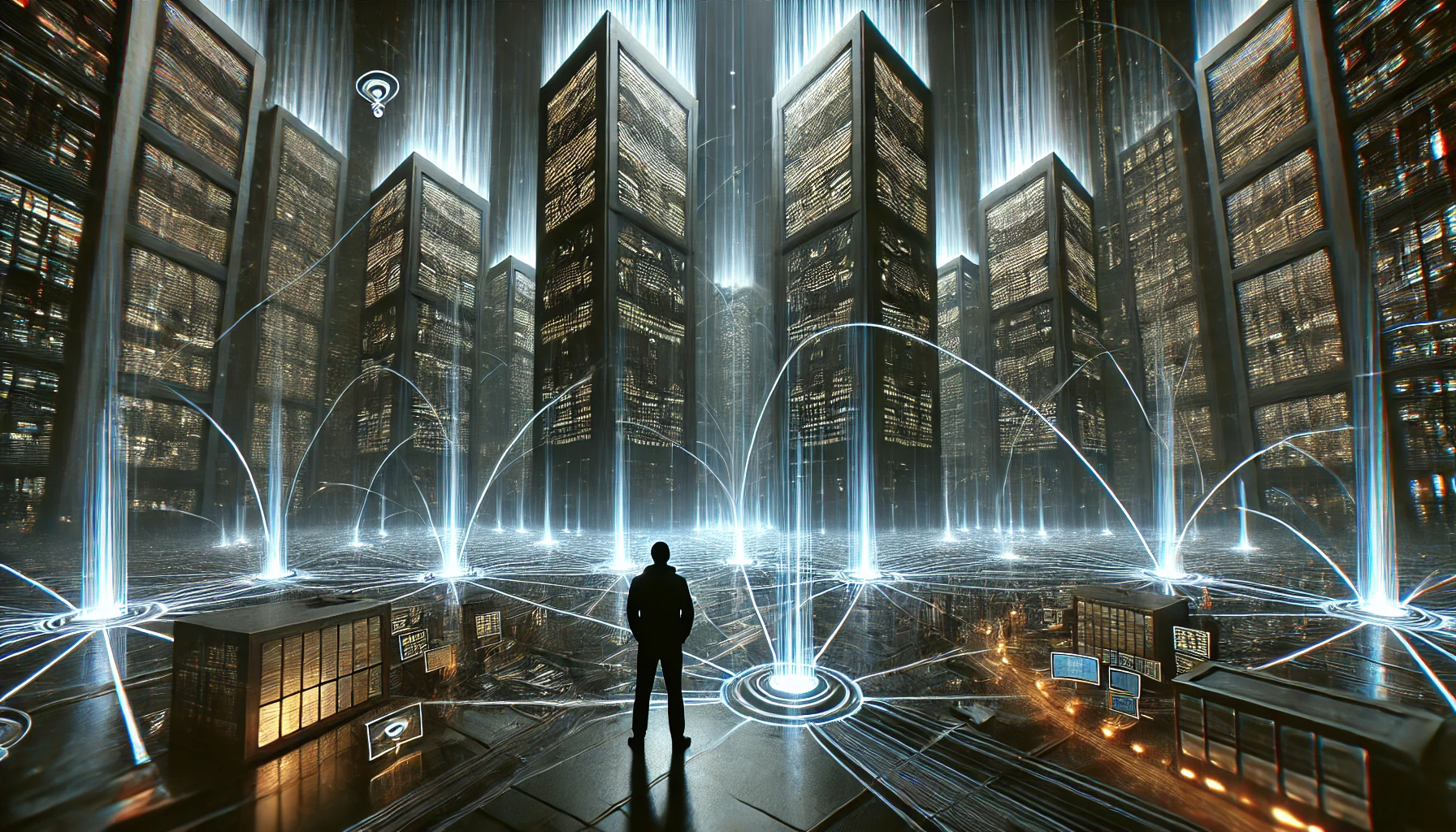
Governments around the world are already using AI for mass surveillance, controlling the flow of information, and even manipulating public opinion. Take China’s infamous social credit system, for example. It’s a chilling glimpse into a future where every move you make is tracked, analyzed, and scored. Cross the street improperly? Your score drops. Buy something the government doesn’t approve of? You could be blacklisted. And it’s all powered by AI. What once required massive human resources to monitor and enforce can now be done in real-time by algorithms designed to keep citizens in check. If that doesn’t wake you up, what will?
Then there’s AI-driven predictive policing, which is becoming more prevalent in Western democracies. Sure, it’s sold to us as a way to prevent crime before it happens, but let’s not kid ourselves—this tech is only as good as the data it’s fed. And data, as we know, is often biased. These AI systems have the potential to reinforce existing racial and socioeconomic disparities, targeting certain groups unfairly while giving others a free pass. And who do we blame when an innocent person is flagged by an algorithm and their life is derailed? The AI? The programmers? Or is this just the cost of a “safer” society?
But the real kicker here is AI-powered propaganda and information control. Governments and political actors are already using AI to manipulate public opinion, infiltrating social media feeds, amplifying certain narratives, and drowning out dissent. Think about the last few elections you’ve witnessed—how much of what you read online was authentic, and how much was AI-generated content designed to push you toward a certain viewpoint? AI isn’t just reading our thoughts; it’s shaping them. It’s no longer a question of if we’re being influenced by these systems but how deeply we’re entrenched in a narrative we didn’t even choose for ourselves.
And while AI promises a future of smarter, more efficient governance, transparency is becoming a thing of the past. Algorithms are notoriously opaque—black boxes that process our data, make decisions, and provide zero explanation for how they arrived at those conclusions. This lack of transparency means that governments can hide behind AI systems, deflecting accountability for controversial decisions by blaming “the algorithm.” This isn’t about making better decisions—it’s about shielding power behind a technological curtain, a 21st-century Wizard of Oz scenario where the public is kept in the dark, only seeing what they’re meant to see.
Of course, these AI systems require massive data collection to function. And guess who’s providing that data? You are. Every time you log into your social media accounts, use a smart device, or even just walk past a camera-equipped with facial recognition technology, you’re feeding the system. Governments are increasingly reliant on this data to train their AI models, meaning every bit of your digital footprint is fair game. Sure, companies tell you it’s for a better user experience—but what’s really happening is that your data is being weaponized to monitor, control, and predict your behavior.
The scariest part of all? Most people don’t even care. We’ve been lulled into complacency, made to believe that these government changes using AI tech are for our benefit. But take a closer look—are we really in control, or are we being controlled? The answer lies in how willingly we hand over our privacy, our decision-making, and ultimately, our freedom to systems that aren’t as neutral as they seem.
But let’s not get too comfortable with the dystopian future just yet. There’s still time to push back, to question, to demand transparency in how AI is being used by our governments. The more we stay passive, the more this quiet revolution will creep into every corner of our lives. The real question is: will you wake up before it’s too late?
Which brings us to the heart of the matter—what does all of this mean for you, the individual? Are we about to lose our last shreds of autonomy in the name of convenience and security, or is there a way to reclaim our power? Let’s dive into how these changes will affect the average citizen, and more importantly, what you can do about it…
Government Changes Using AI Tech: What It Means for the Average Citizen
The phrase “government changes using AI tech” might feel distant, abstract, and unrelated to your everyday life—but that’s where the danger lies. The reality is, AI is already reshaping your world in ways that go far beyond futuristic sci-fi scenarios. It’s happening in your neighborhood, your city, and even in the very laws that govern how you live. If you’re sitting there thinking, “This doesn’t affect me,” then you’re already falling into the trap.
For the average citizen, the integration of AI into government means that your interactions with public systems—from renewing your driver’s license to paying taxes—could become faster and more efficient. On the surface, this seems like a win, right? Less red tape, quicker processes. But the true cost of these improvements goes far deeper than just convenience. Behind the scenes, AI is quietly collecting, analyzing, and using your personal data to shape not only your individual experience but society as a whole.
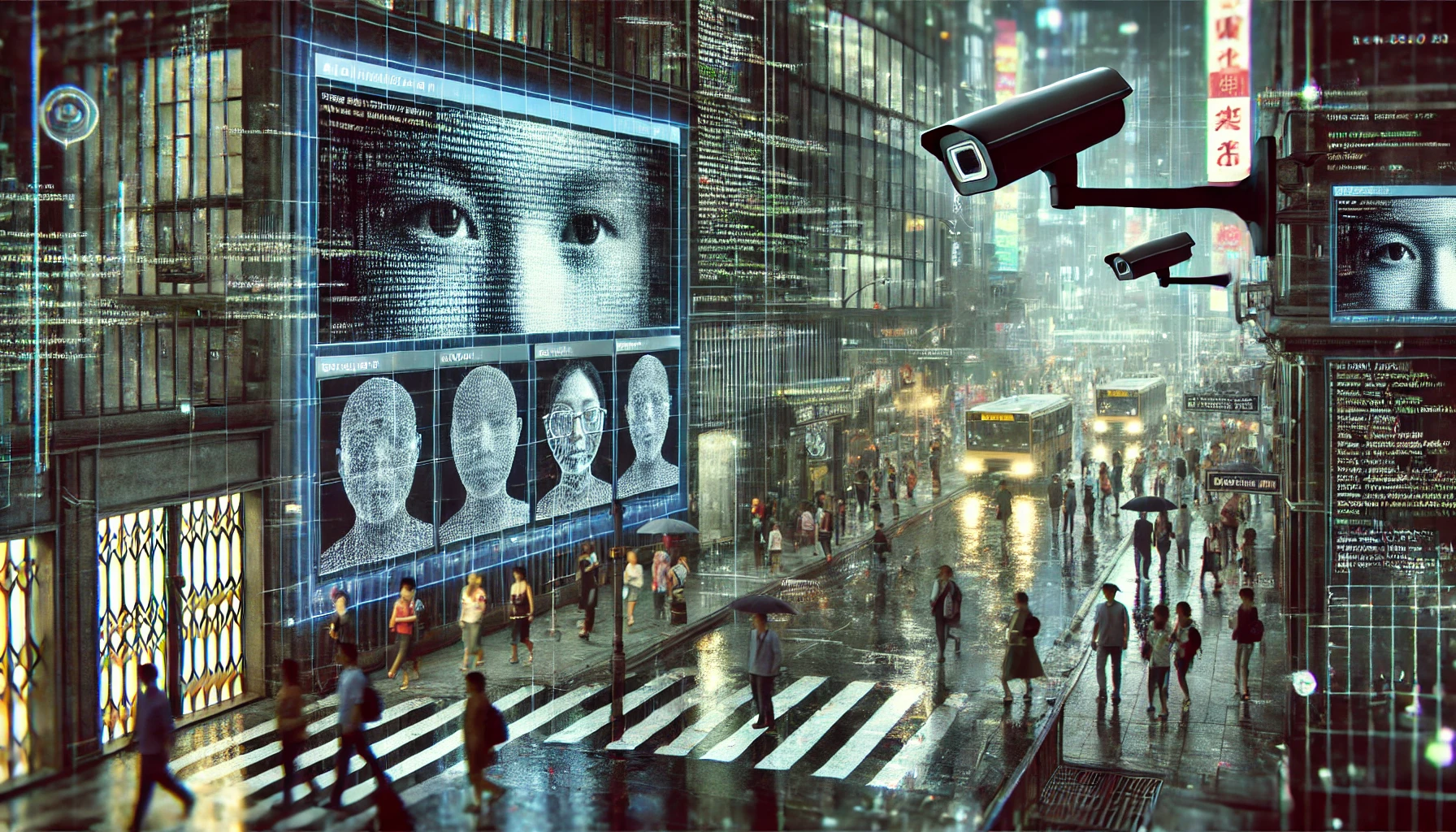
One of the most immediate impacts of these AI-driven government changes is the erosion of privacy. From facial recognition cameras on every street corner to AI-powered apps monitoring your online habits, your personal data is being harvested at an unprecedented rate. Governments argue that this level of surveillance is necessary to ensure security, to prevent crime, and to provide better services—but who gets to draw the line between safety and intrusion? The same technology that can alert emergency services to a crime in progress can also be used to track every move you make, without your consent, and without your awareness.
And it doesn’t stop there. Bias in AI algorithms is a growing concern, particularly when it comes to things like law enforcement, social services, and access to government benefits. These systems are often built on data sets that reflect historical inequalities, meaning that certain groups—whether based on race, income, or location—may be unfairly targeted or marginalized. If an AI algorithm decides you’re a “high-risk” individual, based on incomplete or biased data, you could find yourself on the wrong side of the system without ever understanding why. No appeal process, no human oversight—just cold, calculated decisions made by a machine that doesn’t care about nuance.
Then there’s the psychological impact. As more decisions become automated, we, as individuals, begin to relinquish control over our own lives. When an AI makes decisions for us—whether it’s something small like renewing a parking permit or something big like denying a loan—we slowly start to trust machines more than we trust ourselves. This passive acceptance is exactly what governments leveraging AI technology are counting on. The more dependent we become on these systems, the less we question them. This isn’t just about convenience; it’s about conditioning—gradually molding us into passive sheep that follow the system’s lead without question.
But you don’t have to be one of the sheep. Becoming aware of these subtle shifts is the first step to reclaiming control. We need to start questioning how AI is being used in government, demanding transparency, and advocating for ethical standards that protect citizens, not just serve the interests of the state. After all, AI can be a force for good, but only if we, the people, have a say in how it’s implemented and regulated.
So, what does all of this mean for you? It means that now, more than ever, we need to become critical thinkers—goats, not sheep—questioning every step our governments take with this technology. The average citizen can no longer afford to be passive or indifferent, because the decisions being made today will shape our freedoms tomorrow. The narrative is no longer just about technology advancing faster than ever before; it’s about how much control we’re willing to give up in exchange for convenience.
The implications are clear: The way we engage with AI-driven systems will define the balance between liberty and control in the coming years. And the scariest part? The shift is so subtle, most people won’t realize what they’ve lost until it’s too late.
But let’s not leave it there. The power to change course is still in our hands—if we’re willing to wake up and do something about it. So, how do we fight back? How do we ensure that AI doesn’t strip us of our autonomy and instead serves as a tool for empowerment, not oppression? Let’s talk about how you can stay ahead of this AI revolution, and more importantly, how you can take back control before it’s too late…
The Call to Action: How to Stay Ahead of AI in Government
By now, it’s clear: government changes using AI tech aren’t just transforming bureaucracy—they’re reshaping the very foundation of how society functions. And while the allure of convenience and efficiency may make us comfortable, the price we pay in autonomy and privacy is far too high. The time for passive acceptance is over. If you want to stay ahead of the game, if you want to avoid being another cog in the AI-driven machine, you need to act—and act now.
So, how do we go from passive consumers to active, independent thinkers in this AI-controlled landscape? The first step is awareness. Start paying attention to how AI is being used in your local and national government. The policies being drafted today will have profound effects tomorrow. Whether it’s AI surveillance, predictive policing, or automated decision-making, you need to understand where, how, and why these systems are being deployed. Governments thrive on the fact that most citizens are uninformed—don’t give them the satisfaction. Follow the developments, read between the lines, and understand the implications.
Next, it’s about demanding transparency. One of the most dangerous aspects of AI-driven governance is the lack of accountability. Algorithms, in their complexity, often operate as black boxes, with little to no explanation about how they arrive at decisions. You need to push for openness—advocate for policies that require governments to disclose how AI systems work and ensure they are subject to public scrutiny. The only way to prevent abuse is to demand visibility. After all, if AI is influencing decisions that impact your life, don’t you have the right to know how those decisions are being made?
It’s also essential to protect your data. AI thrives on data—your data. Every interaction, every digital footprint, fuels the systems that governments use to monitor, predict, and, ultimately, control behavior. But you still have control over what you share and how you protect it. Use privacy tools, limit the personal information you put online, and stay vigilant about where your data is going. The less data these systems have to work with, the harder it becomes for them to operate unchecked.
And here’s the kicker: get involved in policy discussions. It’s easy to sit back and assume AI policy is too complicated for the average citizen, but that’s exactly the mindset that keeps the status quo in place. AI in governance isn’t just a tech issue—it’s a human issue, a societal issue. Speak up. Engage with your representatives. Advocate for ethical AI policies that prioritize human rights, privacy, and fairness. You don’t need to be a tech genius to understand the basics and fight for your interests. Grassroots movements have power—use it.
Finally, and most importantly, become a critical consumer of AI-driven services. Whether it’s in government or the private sector, stop blindly trusting technology. Just because an AI system is efficient doesn’t mean it’s right. Challenge the decisions these systems make—ask for explanations, question their fairness, and don’t hesitate to push back if something feels off. AI systems are built by humans, and they are far from infallible. Remember, being a goat in a world full of sheep isn’t just about resisting control; it’s about staying sharp, questioning everything, and never letting yourself fall into the trap of complacency.
Staying ahead of AI in government isn’t just about surviving—it’s about thriving in a rapidly changing world. The future belongs to those who can navigate it with eyes wide open, not to those who follow blindly.
But what’s next? How do we tie this all together? Let’s dive into some concrete questions you might have and break down the key takeaways so you can start taking action today…
Taking control of your mental clarity and potential can give you the edge in a world increasingly driven by AI—just like how the Billionaire Brain Wave: Unlock Your Mind’s Wealth Potential in Just 7 Minutes helps you unlock your fullest potential.
Breaking Free From the AI Matrix: Your Questions Answered
You’ve made it this far, which means you’re starting to question how government changes using AI tech are really impacting your life. That’s exactly what needs to happen. But as the AI-powered machinery continues to churn, it’s easy to feel overwhelmed. What does all this mean for your privacy, your freedom, your future? Below, we break down some of the most pressing questions you’re likely asking yourself about AI’s growing role in governance—and, more importantly, how you can navigate this new reality without becoming just another pawn in the system.
What Are the Biggest Government Changes Using AI Tech Today?
AI isn’t a futuristic concept anymore—it’s already here, shaping the decisions that affect your daily life. From automating routine government services to influencing policy through complex data analysis, AI is revolutionizing how governments operate. Key changes include:
- AI-powered surveillance systems: These are being used to monitor public spaces, track individuals, and predict criminal activity. Think facial recognition cameras, predictive policing algorithms, and data-mining technologies.
- Automated decision-making: Bureaucratic processes like welfare distribution, healthcare access, and even judicial sentencing are increasingly relying on AI for efficiency. While it might sound efficient, it also raises concerns about fairness, bias, and transparency.
- Smart cities: Governments are integrating AI into urban planning to optimize infrastructure, manage resources like electricity and water, and even predict traffic patterns. These changes may seem helpful, but they also contribute to an ever-growing web of surveillance.
Is AI in Government a Threat to Democracy?
Absolutely—if left unchecked. While AI can improve the efficiency of governmental functions, it also poses a serious threat to the democratic process. When algorithms, not humans, start making key decisions, we risk handing over too much control to systems that are not accountable to the public. Here’s why:
- Opaque decision-making: AI systems often operate as black boxes, meaning their decision-making processes are not transparent. This lack of transparency makes it difficult to hold governments accountable for AI-driven actions.
- Amplification of bias: AI reflects the biases embedded in its data sets, which can result in unfair policies that disproportionately affect marginalized communities. When left unchecked, these biases can deepen inequality rather than address it.
- Erosion of privacy: Mass data collection, driven by AI’s insatiable need for information, means that your personal data could be used against you—without your knowledge or consent.
How Can I Get Involved in AI-Related Policy Discussions?
First, educate yourself. Stay informed about how AI is being used by your local and national government, and pay close attention to new policies or legislation regarding AI governance. From there:
- Join grassroots movements advocating for ethical AI usage. Organizations such as the Electronic Frontier Foundation (EFF) and Algorithmic Justice League are already working to protect civil liberties in the age of AI.
- Engage with your representatives. Make your voice heard by contacting elected officials and urging them to prioritize transparency, fairness, and human oversight in AI-related legislation. The more people push for responsible AI governance, the harder it becomes for governments to ignore public concerns.
- Support tech accountability initiatives. Keep an eye on legal cases or campaigns pushing for greater regulation and ethical standards in AI development. There’s power in numbers—don’t underestimate the impact of collective action.
Will AI Tech in Government Affect My Privacy?
Without a doubt, AI’s involvement in government is reshaping the concept of privacy as we know it. Here’s how:
- Mass surveillance: Governments are increasingly using AI to monitor everything from public spaces to online behaviors. Whether through facial recognition tech, data-mining social media, or tracking digital movements, AI is making it easier for governments to keep tabs on their citizens.
- Data harvesting: Every interaction you have online—whether it’s browsing, shopping, or just posting on social media—feeds into vast data sets that governments use to train their AI systems. This creates detailed profiles of individuals that can be used for predictive purposes, potentially leading to invasive scrutiny of personal behaviors.
The bottom line? Your privacy is eroding. The more dependent governments become on AI, the more they’ll seek to collect and exploit personal data. But you don’t have to go down without a fight. There are privacy tools available—such as encrypted messaging apps, VPNs, and data-minimization strategies—that can help you regain control.
Can AI Really Make Government More Efficient, or Is That Just Hype?
AI can certainly streamline many governmental functions, from cutting down on paperwork to accelerating processes that normally take months. But don’t be fooled into thinking this is a perfect solution. Efficiency doesn’t automatically equal fairness or accuracy.
- Automation vs. Human Judgment: While AI is efficient, it lacks the human judgment necessary to navigate complex, nuanced situations. What happens when you’re reduced to a set of data points, and an algorithm determines your fate based on past trends rather than your unique circumstances?
- Speed Over Scrutiny: In the rush to automate everything, governments may overlook the importance of ethical decision-making, leading to unintended consequences. Yes, processes may be faster, but at what cost to human oversight and accountability?
So while AI can improve government efficiency, it’s critical that we keep a close eye on how these systems are implemented—and insist on human checks and balances to prevent abuse.
The shift to AI-driven governance is already underway, and the stakes are high. But it’s not too late to take back control. It starts with asking the right questions, staying informed, and refusing to be just another cog in the system.
But we’re not done yet. Let’s pull everything together. It’s time to lay out the key takeaways and offer a clear roadmap on how you can turn awareness into action, and ensure you remain on the right side of the AI revolution…
Governments must be held accountable, and transparency is essential when AI is involved. Learn more about why AI in government transparency is a critical issue we cannot ignore.
Wake Up and Take Charge: What You Must Know About AI in Government
It’s time to cut through the noise. The conversation around government changes using AI tech isn’t just an abstract debate for tech enthusiasts or policymakers—it’s about your rights, your privacy, and your freedom. AI in governance is changing the rules of the game, and unless you wake up to what’s happening, you’re going to get left behind, conditioned into passive acceptance. Let’s be clear: AI isn’t just reshaping governments—it’s reshaping you, and how you fit into a world increasingly controlled by invisible algorithms. But here’s the good news: you don’t have to be a cog in the system.
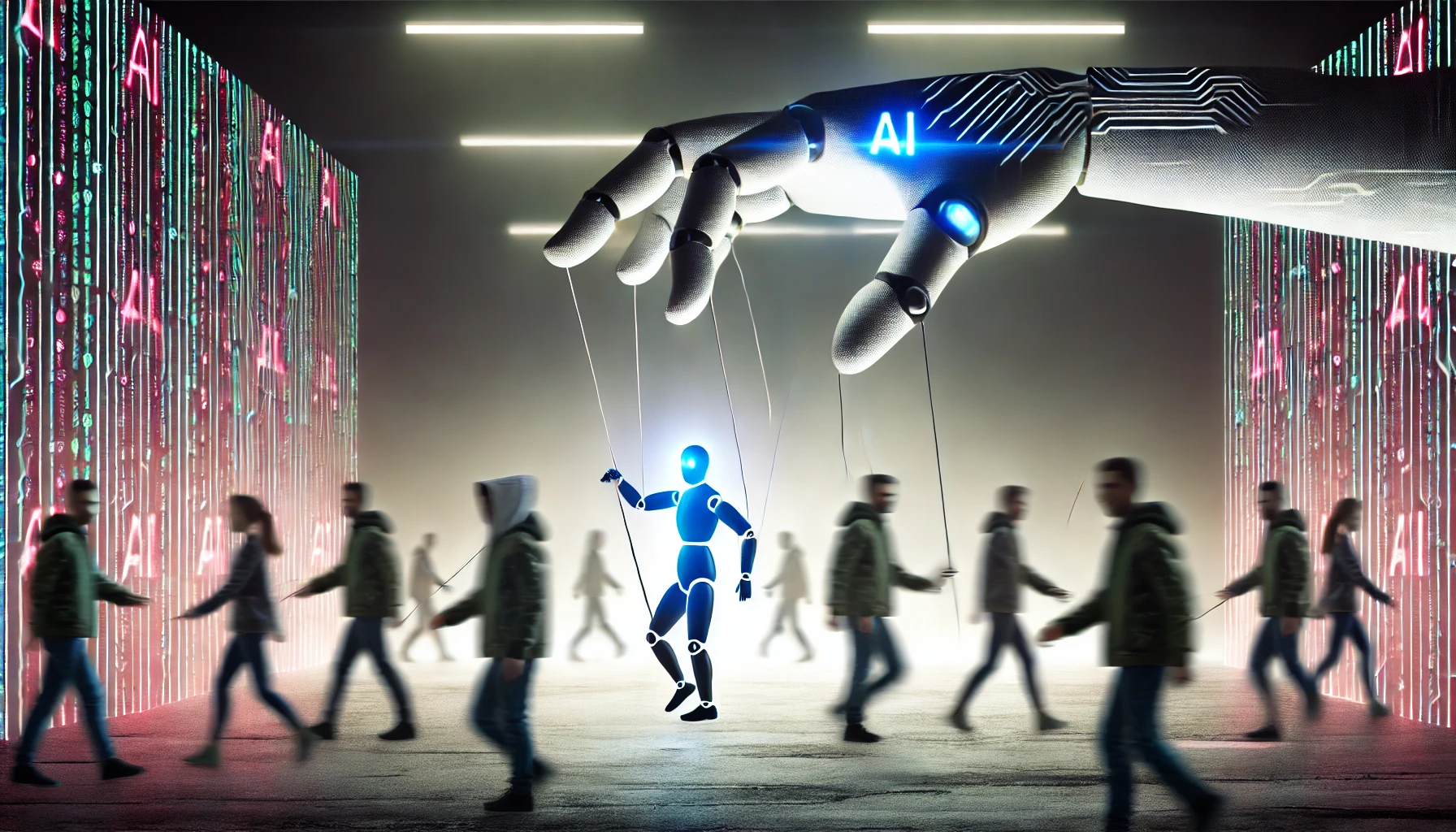
The integration of AI into government processes has the potential to streamline services and make our lives easier, but that’s only the surface-level narrative. Behind the scenes, AI is rapidly being weaponized as a tool for control, shaping everything from surveillance to policy enforcement with little transparency or accountability. So what does this mean for you? It means you need to become an active participant in this conversation, not a passive recipient of whatever AI-driven system gets thrown your way.
First and foremost, understand this: AI is power. The more governments use AI, the more they centralize control in the hands of those who understand and manage the technology. When you let AI systems make decisions on your behalf, you’re giving away a piece of your autonomy. Whether it’s in the form of automated surveillance, AI-driven welfare decisions, or predictive policing, these systems are deciding who gets access, who gets punished, and who gets overlooked. And unless you’re aware of how these decisions are being made, you’ll never know what’s happening until it’s too late.
The truth is, AI’s efficiency is a double-edged sword. Sure, it can make public services more efficient, but that efficiency can also lead to blind spots, where the nuances of human judgment get lost. When algorithms are left unchecked, they can reinforce existing biases, make mistakes at scale, and create systemic inequality faster than humans ever could. Is this the future we want? More importantly, is this the future you’re willing to accept?
It’s time to wake up and take charge of how AI is being integrated into your life. You need to start questioning the narratives being sold to you—by governments, corporations, and even the tech industry. Ask yourself: Who benefits from AI in governance? Who’s in control of the data? What’s being sacrificed in the name of progress? These aren’t questions you can afford to ignore anymore.
Staying informed and taking control of your tech habits is key. You’re constantly feeding these systems data—your data—which governments are using to build ever-more sophisticated tools of control. Every social media post, every interaction with a smart device, is fuel for the AI systems that shape our future. If you don’t take charge of your digital footprint, who will?
So, what can you do?
- Demand transparency from your government. AI systems used in public services should be open to scrutiny. Algorithms should be explainable, accountable, and auditable. It’s your right to know how these decisions are being made, and it’s your duty to push for ethical standards.
- Limit your data exposure. Use privacy tools, question the apps you download, and think twice before handing over your personal information. Every byte of data you give away is another piece of the puzzle governments and corporations can use to shape—and potentially control—your life.
- Get involved in policy discussions. Don’t assume that AI policy is out of your hands. Local and national governments are constantly shaping regulations that will determine how AI is used in your everyday life. Your voice matters, and now is the time to use it.
Becoming a “goat” in a world of sheep means staying sharp, questioning the status quo, and refusing to fall into the passive acceptance of technological advancements without understanding their implications. This isn’t just about staying ahead of the game—it’s about reclaiming your power in a system increasingly run by AI-driven governance.
But this conversation doesn’t end here. If you’re ready to dive deeper and truly understand how AI is shaping your world, we need to look at the key takeaways and actions you can take today to make sure you’re not sleepwalking through this revolution…

